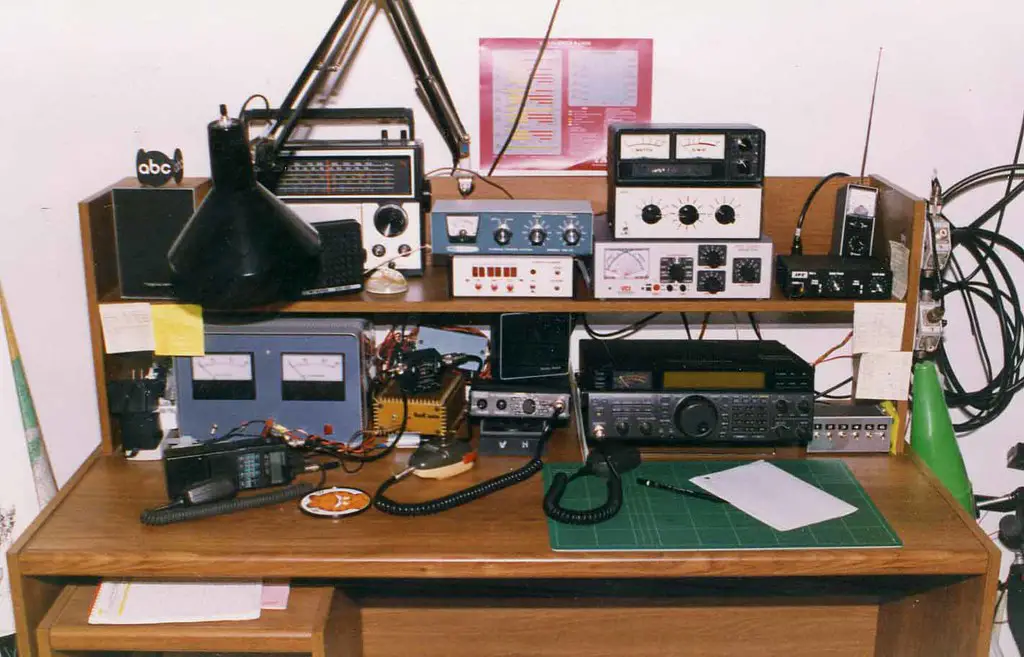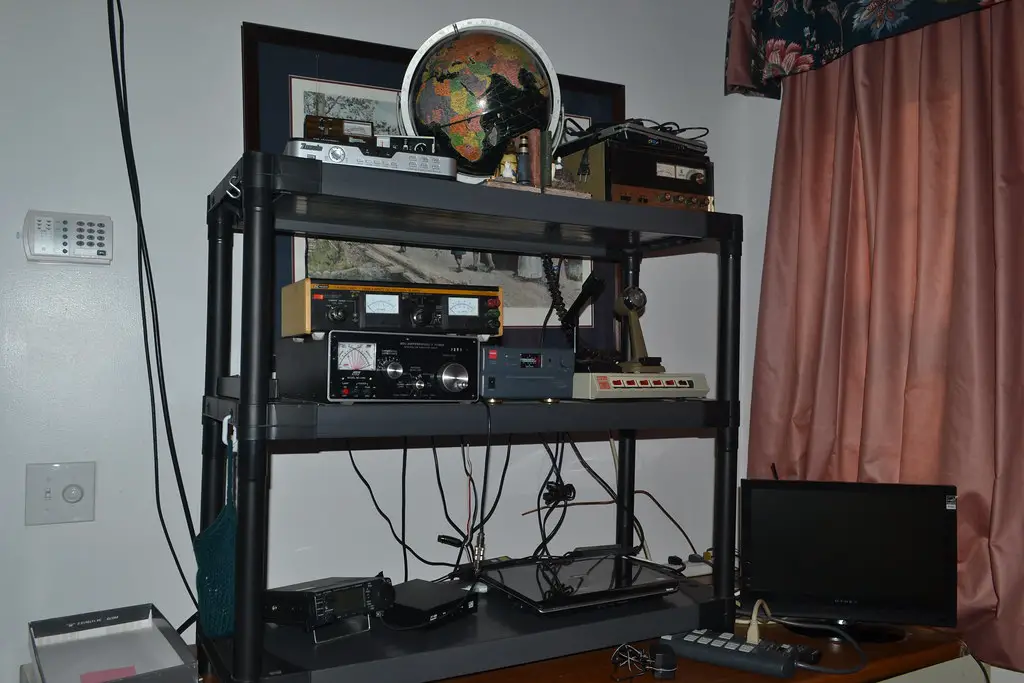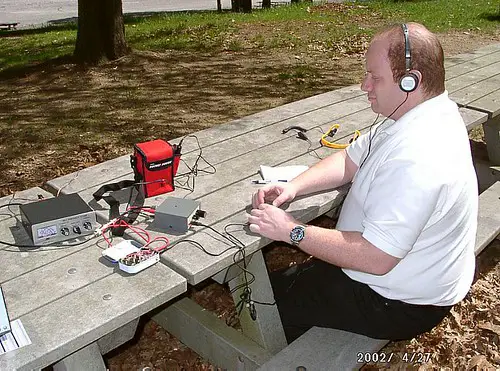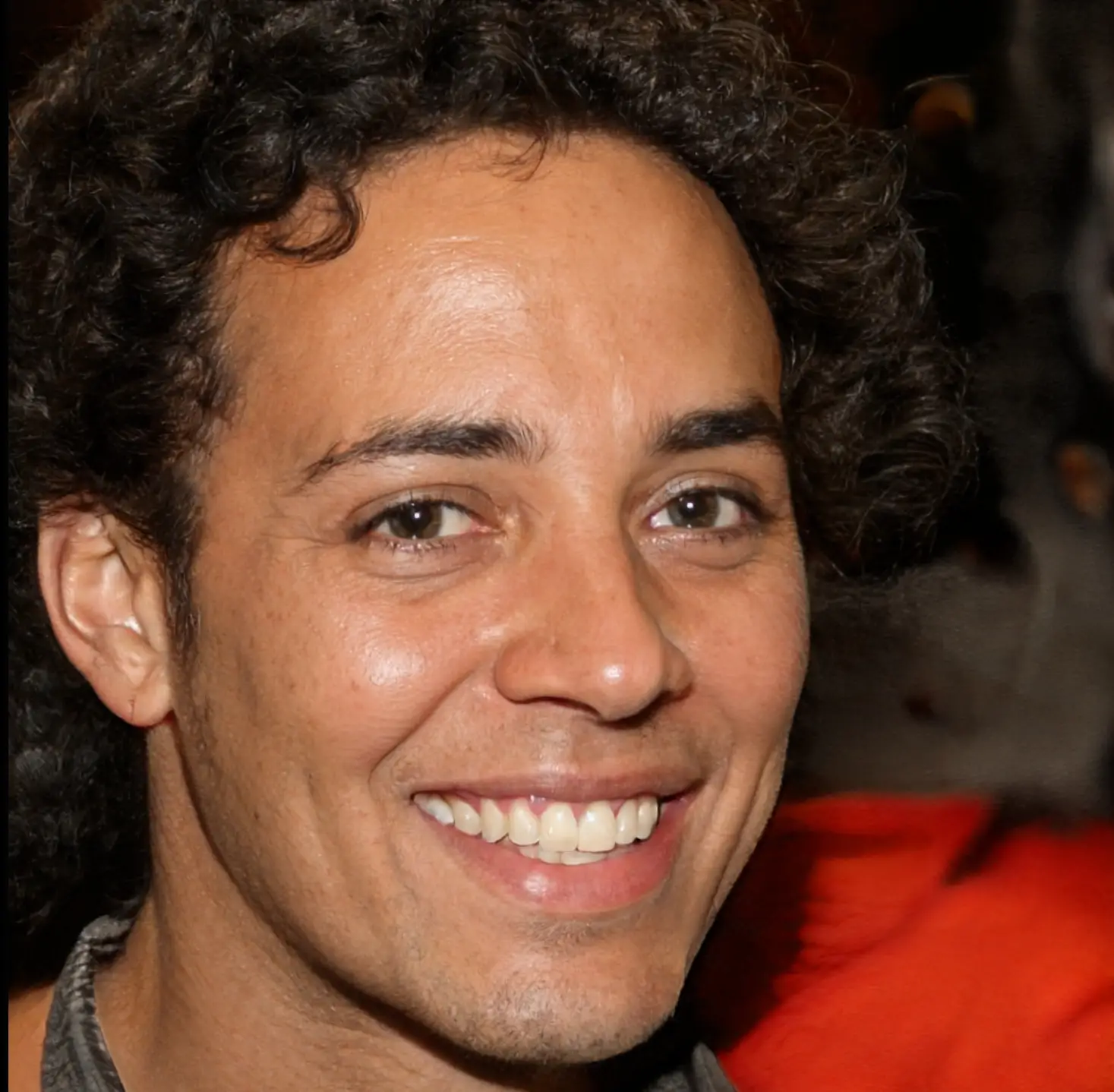Ham Radio, also known as Amateur Radio, is an exciting pastime. It enables individuals to talk with other enthusiasts worldwide using wireless signals. This article explains the opportunities this hobby offers.
With ham radio, individuals can converse with people from far-off countries, cultures, and backgrounds. It is a platform that unites people who have a passion for technology and communication. It’s amazing to be able to connect with others, even in the most distant locations.
A unique feature of ham radio is its part in emergency communication. When regular communication systems may fail in crisis situations or natural disasters, hams provide essential help. They pass on messages and info to isolated areas. This shows the importance of ham radio operators in times of need.
In addition, ham radio aficionados relish experimenting with various technologies and constructing their own gear. There are endless possibilities for creative exploration in designing antennas and radios. They keep on learning and participating in contests and events to perfect their skills and knowledge.
Pro Tip: Joining a local amateur radio club offers many benefits. It provides resources and links in the ham radio community. It offers mentoring, teaching new techniques, and taking part in group activities such as field days or special event stations.
What is ham radio?
Ham radio, or amateur radio, is an exciting hobby. It uses special equipment, operated by licensed users. With it, you can talk to people all over the world. You can also join emergency communication networks and test new technologies.
Ham radio offers endless possibilities. As an operator, you can meet other enthusiasts with the same interests. You can discuss tech, sports, and even the weather. Plus, you can learn about different cultures.
Ham radio is important in emergency situations. When traditional methods of communication fail, ham radio can help. It allows people to coordinate relief efforts and share essential info.
For example, during Hurricane Andrew in 1992, ham radio saved lives. All other forms of communication were down. But, ham radio operators relayed messages from affected areas to help authorities.
Getting started with ham radio
Curious about starting with ham radio? Here’s a helpful guide!
- Set Up Your Radio: Choose a radio that fits your needs and budget. Consider things like frequency bands, power, and features. Follow the manufacturer’s directions to set it up.
- Get a License: Before transmitting, get a license from your country. You’ll need to pass an exam that covers electronics, operating, and regulations.
- Join a Club: Join a local club or organization. You can learn from other operators, participate in contests or events, and connect with other enthusiasts.
- Learn Procedures: Get familiar with the etiquette and procedures used by ham radio operators. This includes call signs, listening, avoiding interference, and frequency rules.
- Explore Modes and Activities: Ham radio has many modes and activities. Try different transmissions like voice, Morse code, digital modes, satellites, and moon bounce.
Remember, ham radio is more than communication. You can help in emergencies, assist with public service events, and do research projects.
Pro Tip: Stay updated on the latest technologies. Attend seminars, workshops, or webinars. Talk to experienced operators. The more you learn, the more fun your journey will be.
Exploring the different uses of ham radio
Ham radio has unique features that widen its appeal. It’s flexible, as it allows for communication on various frequency ranges and modes. Technological advancements also make it smaller and more powerful. Plus, it has international connectivity, connecting people from diverse backgrounds and countries.
To make the most of ham radio, join local clubs or organizations. Participate in training programs, experiment, and explore. Also, stay updated with advancements in the amateur radio world.
By doing this, individuals can unlock a world of communication possibilities while nurturing their passion for this captivating hobby.
Building a ham radio community
Mark had a mission: unite local ham radio operators. He organised an annual field day! Participants brought their portable stations to a public park. It was a weekend of demos and competitions, plus a chance to learn more about the hobby. As a result of Mark’s efforts, many found lifelong friends and mentors.
To further improve the ham radio community, we could do things like:
- Organise meetups & events for hams to share their knowledge.
- Set up online forums or social media groups for real-time Q&A and support.
- Let experienced hams guide newcomers in mentorship programmes.
- Create workshops for antenna-building techniques.
- Make special interest groups focus on specific areas of amateur radio.
Advancing your skills and knowledge
Gain knowledge in ham radio with courses, workshops, and online platforms. Focus on navigating operating modes, building antennas, connecting with satellites, troubleshooting radio interference, and learning emergency communication protocols.
Online forums, books, literature, and mentorship programs offer even more resources. Attending conventions and conferences is great for networking and staying up-to-date. Participate in contests and join special interest groups to practice real-world scenarios.
Get hands-on with ham radio by building equipment and designing antennas. Your journey of learning amateur radio continues.
The ARRL recognizes dedicated operators with awards and certifications. These accomplishments are celebrated within the ham radio community.
Resources and recommendations for ham radio enthusiasts
Are you a passionate ham radio enthusiast? Here are six key points to consider:
- Join a club or organization to connect with fellow enthusiasts and access resources.
- Participate in contests and events to challenge yourself and learn.
- Explore online forums and discussion groups to ask questions.
- Invest in good quality equipment for optimal performance.
- Keep up with the latest advancements through magazines, newsletters, and online publications.
- Consider obtaining certifications and licenses to broaden your capabilities.
Besides that, many websites offer guides on antenna systems, propagation techniques, and operating procedures. Moreover, advanced enthusiasts could benefit from exploring software-defined radios.
A friend of mine recently made an amazing discovery at a flea market – a vintage radio! He restored it and was delighted to witness the evolution of ham radio technology.
So if you’re looking for resources and recommendations, there’s plenty to explore. Join communities, upgrade your equipment, and embrace new technologies – the possibilities are endless!
Conclusion
Ham radio is a versatile tool, with many possibilities. Its great range of uses and capabilities make it incredibly useful to individuals and communities. It’s unique, unlike any other form of communication.
We have seen the many ways ham radio can be used: from emergency support to scientific research. It’s independent of traditional infrastructures, making it reliable. Also, operators of ham radio form a close-knit community, encouraging learning and collaboration.
One story demonstrates the power and impact of this technology. In a remote village, after an earthquake, all communication was lost. Except for one: ham radio operators. They quickly connected with nearby communities and authorities. Thanks to them, vital information was sent, lives were saved and help was sent. This shows the amazing capabilities of ham radio.
Frequently Asked Questions
Q: What can you do with ham radio?
A: Ham radio, also known as amateur radio, offers a wide range of activities and services. You can use the ham radio for emergency communication, public service events, hobby experimentation, making contacts with other radio enthusiasts worldwide, participating in contests, and even international space communication.
Q: How can I use a ham radio for emergency communication?
A: In times of emergencies or natural disasters when regular modes of communication may be disrupted, ham radio operators play a crucial role. They provide emergency communication services, relay vital information and coordinate response efforts between different organizations, agencies, and individuals in affected areas.
Q: What is involved in participating in public service events with ham radio?
A: Ham radio operators often volunteer their services in public service events such as marathons, parades, and community gatherings. They assist event organizers by setting up communication networks, ensuring smooth coordination and safety during the event, and offering prompt assistance if any emergencies arise. It’s an excellent way to utilize your radio skills while serving the community.
Q: Can I experiment and build my own equipment with a ham radio?
A: Absolutely! One of the fascinating aspects of ham radio is the opportunity to experiment, learn, and build your own radio equipment. Many enthusiasts enjoy designing and constructing antennas, radios, and other accessories. It’s a great way to deepen your understanding of radio technology and enhance your overall ham radio experience.
Q: How can I make contact with other ham radio operators around the world?
A: Ham radio allows you to establish contacts, commonly known as “making QSOs” (a Q-code for “contact”), with fellow operators globally. You can communicate via voice, morse code, or through various digital modes like PSK31, FT8, or WSJT-X.
By leveraging different frequencies and propagation conditions, you can connect with operators from different countries and exchange information, and experiences, and sometimes even make lasting friendships.
Q: What is involved in participating in ham radio contests?
A: Ham radio contests provide a thrilling experience for operators who enjoy competition. These events involve making as many contacts as possible within a given timeframe and following specific rules.
Participating in contests hones your operating skills, helps you learn to handle high traffic on the airwaves, and offers opportunities to win awards and recognition in various contest categories.




